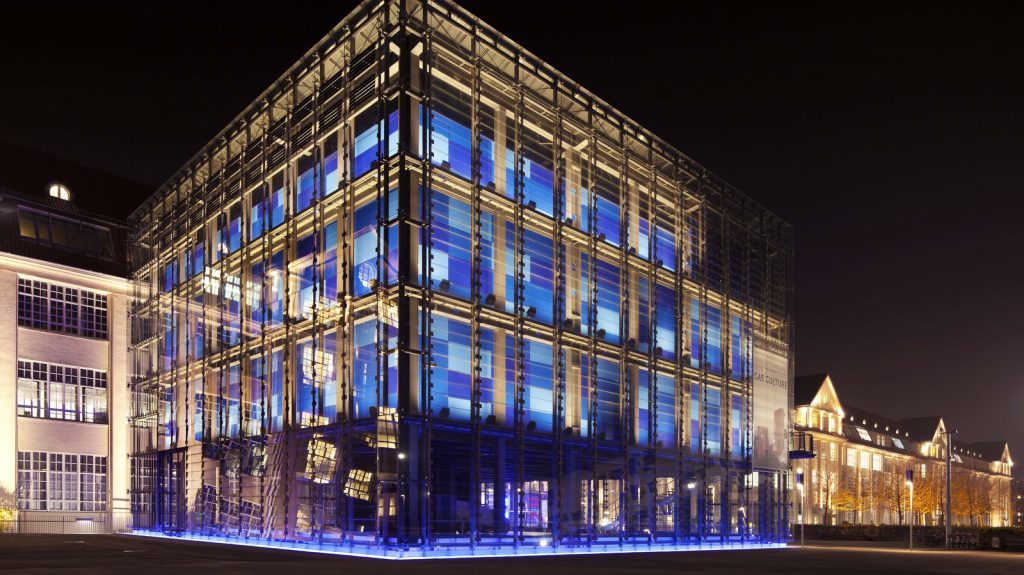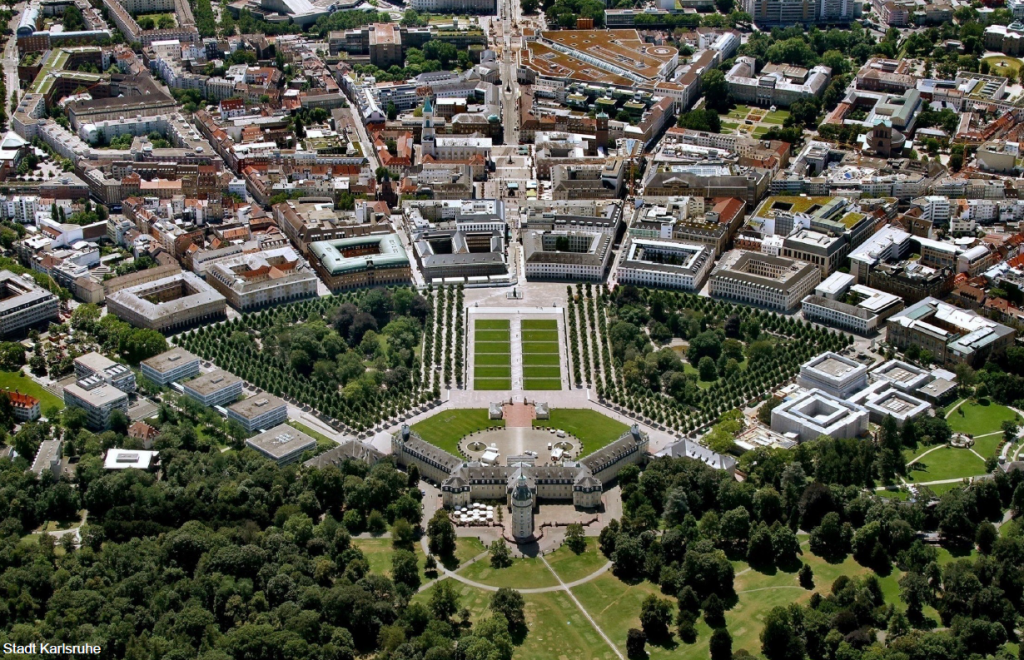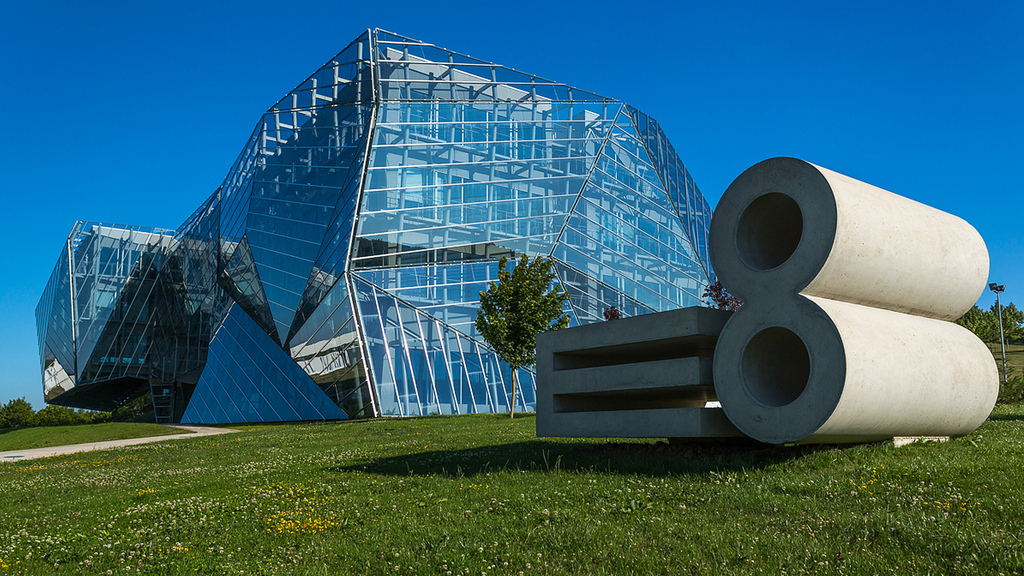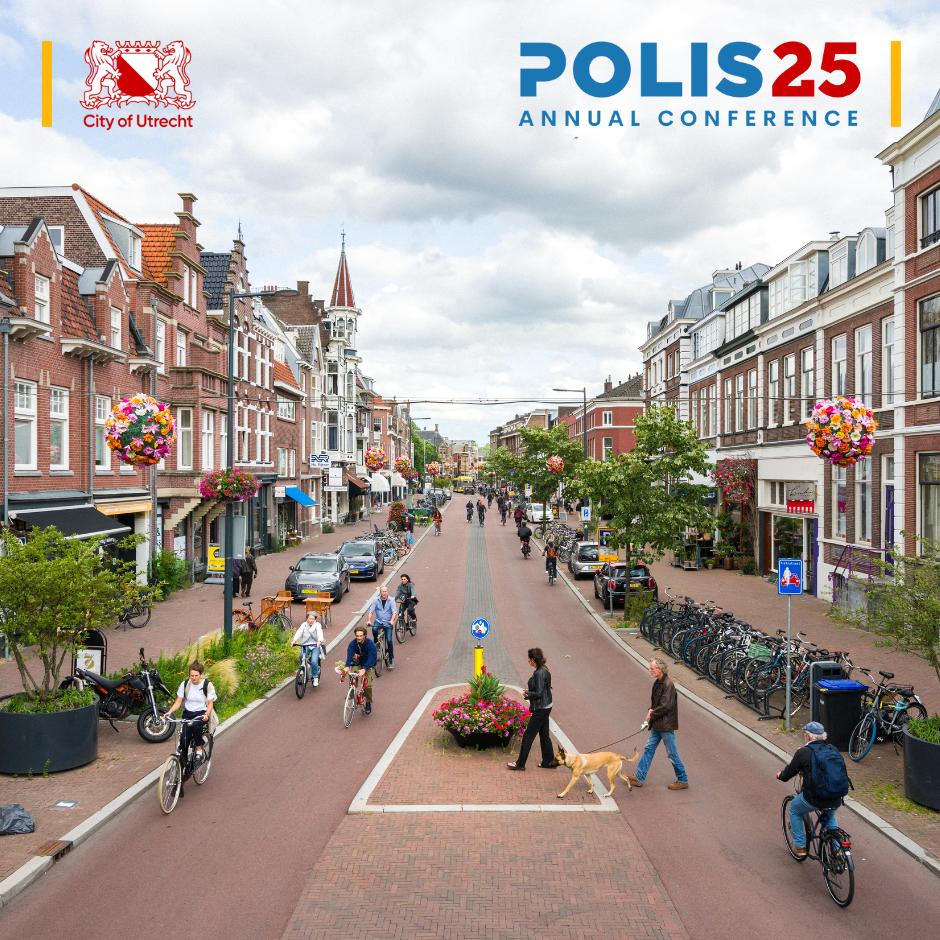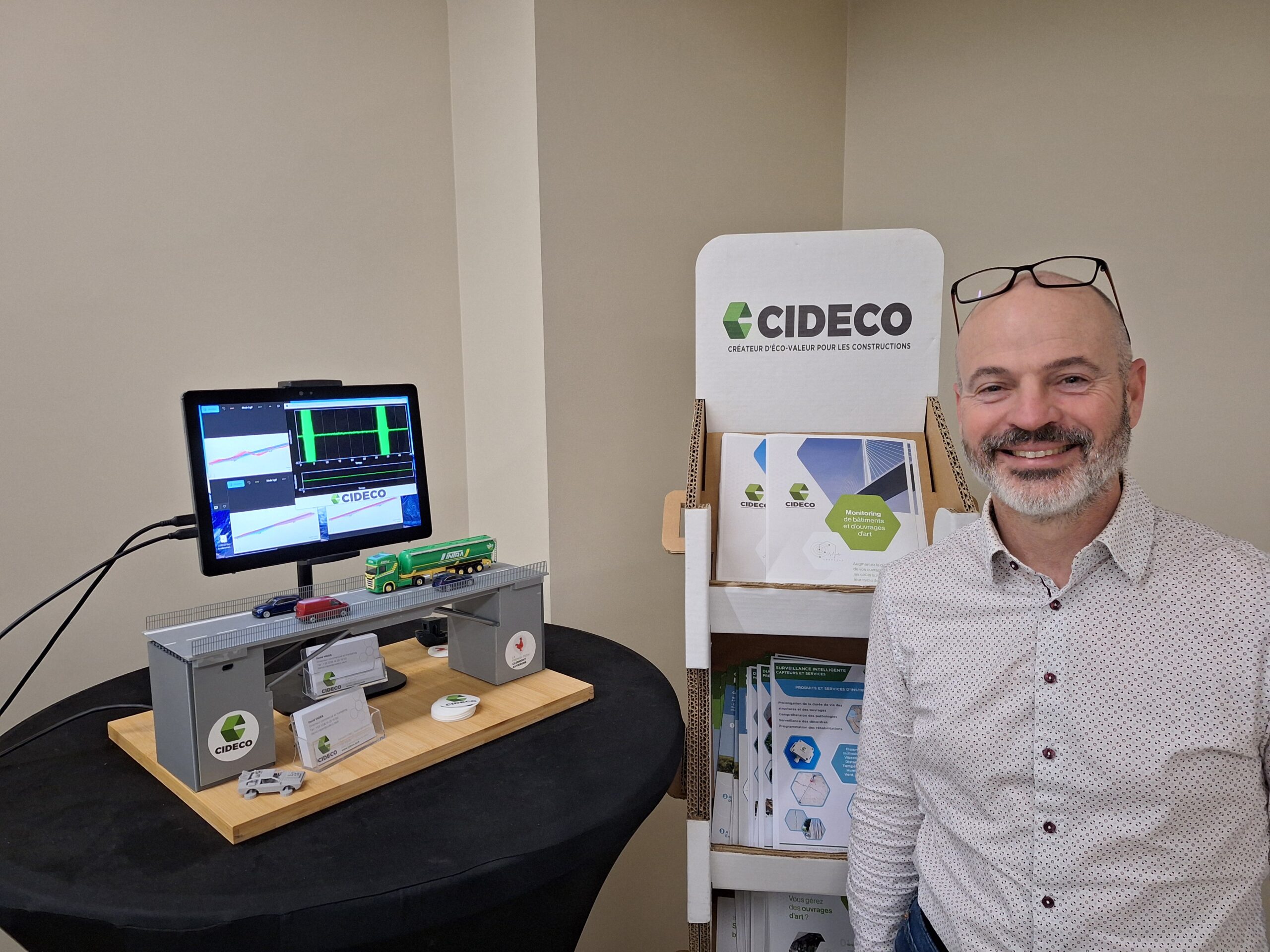
| Prof. Dr.-Ing. Anke Karmann-Woessner first specialised in urban development as a student of architecture. She built on this by working for more than ten years for the Bavarian State Building Authority. She still lectures in the areas of regional development, urban planning and urban management at an international university level, and holds responsibility for European funding programmes. For more than a decade, she has played a leading role in urban planning in her position as director of city planning – first in Stuttgart and since 2013 in Karlsruhe. She has brought this wide-ranging experience to the DGNB committee for sustainable urban development and, since 2019, to the DGNB board of directors, also promoting knowledge sharing on a national and international level. |
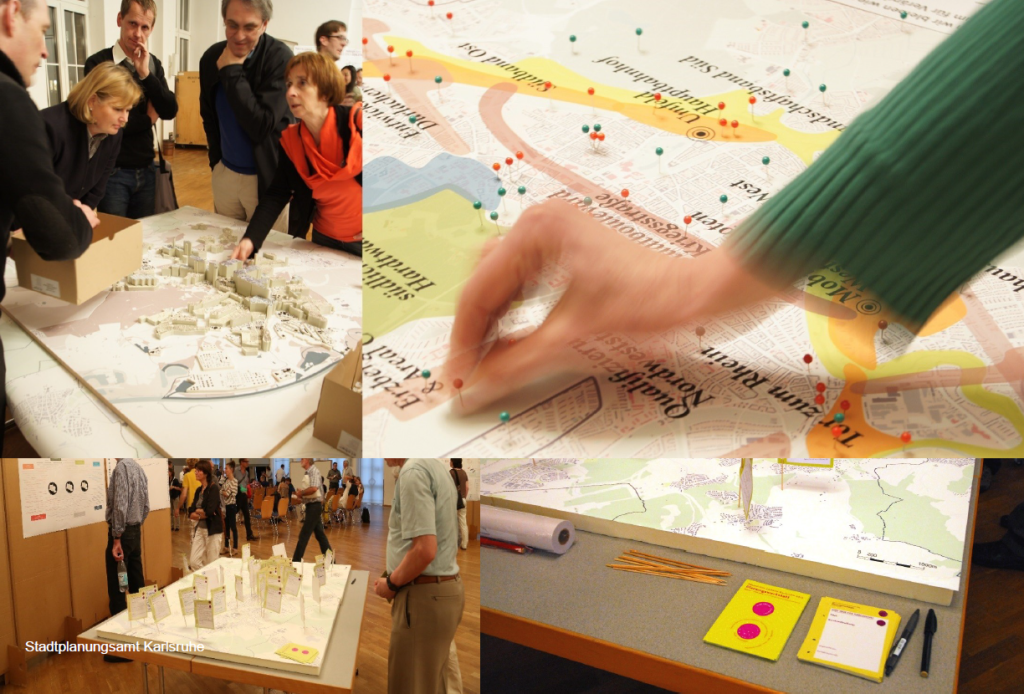
“Changing travel infrastructures, the green energy transition, climate protection, demand for affordable housing, civil participation schemes, digital transformation – the major challenges of our time are part and parcel of life in the city and conurbations. A great deal has already been undertaken to translate sustainable urban development into action on a municipal level. And demands to do something are no less pressing given the COVID-19 pandemic. Now it’s important to promote transformative power in government administration!
Two essential foundations were laid over the last decade enabling sustainability to make some important steps forward. First, the United Nations managed to reach agreement on a multinational level regarding the demands of sustainable urban development, and second, cities were for the first time given a say in global political discussion.
Important papers for cities and sustainability
The pace has really picked up since the mid-2010s. For the first time, the community of states reached agreement regarding 17 specific sustainable development goals and paved the way for active climate protection through the Paris agreement. A further global paper was then published by the United Nations, the New Urban Agenda, explicitly documenting the demands this would place on cities.
Later this year under German presidency of the Council of the European Union, the New Leipzig Charter will be passed on the nature of sustainable cities in Europe. The transformative power of cities should assume three important attributes under this charter: fair, green, productive. The charter will be based on the Leipzig Charter signed off in 2007, which is still considered a key point of reference in Europe for the principles of integrated urban development.
The Leipzig Charter: three concrete actions
Prof. Klaus Beckmann, president of the ARL, pulled together the key areas of action in preparation for the new Leipzig Charter. In so doing, he did not fail to emphasise that success would depend on common understanding and collaboration between governments, states, municipal authorities, departmental policy-makers, key stakeholders, the business community and the general public.
1. Social participation for all : This is about addressing social, economic, digital and spatial inequality through integration, access to work, education, housing, supplies, recreation, health care and communications. Avoiding inequalities in climate change also plays an important role, however.
2. Accelerating the green energy transition, climate protection and resource conservation : Here, solutions lie in closed-loop recycling and efficient, coherent and sufficient planning.
3. Active, participative, transparent and fair housing regulations and land use policy : Constructive policies in this area promote the mixed use of space, sustainable land use and the introduction of public spaces. Importantly, they also encourage social discourse on the availability of land!
Digital transformation is an enshrined element in all areas of the New Leipzig Charter, a central task transcending all areas. This starts with broadband infrastructures, extending to technological innovation in buildings, sustainable transportation systems and connected communication.
The Pact of Amsterdam – giving cities a strong voice!
One thing these developments highlight is that in recent years, it has become increasingly clear to the states of Europe that cities play a pivotal role in sustainable development. It’s worth pointing to the European-level 2016 Pact of Amsterdam when it comes to giving a voice to cities: the pact, which gave birth to the Urban Agenda for the EU, highlighted the need to take an approach based on multilevel governance, for the first time allowing cities to provide unequivocal input on EU policy based on their experiences. Cities were called upon to form 14 partnerships revolving around certain topics – Jobs and Skills in the Local Economy, Digital Transition, Urban Mobility, Culture and Cultural Heritage, and Security in Public Spaces. They were also invited to participate in legislation processes, funding programmes and the strengthening of networks. The only German city involved in the programme is Karlsruhe, which in 2017 was given the lead for the Urban Mobility partnership with the Czech Republic. This project will conclude in 2020 with nine calls to action.
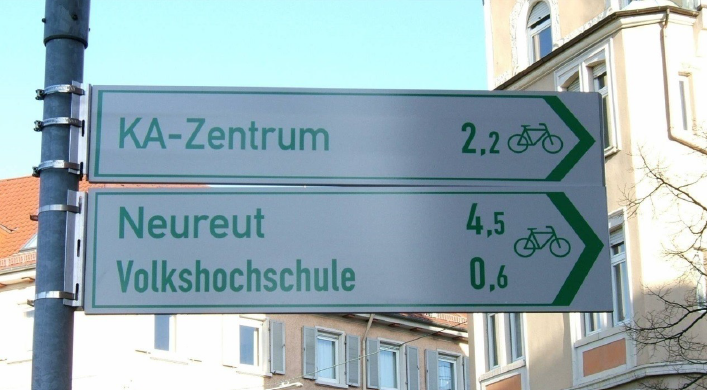
What is expected of a modern city
So this is the framework. But what sort of issues do they talk about in Brussels and all the cities in this world? Two key topics have moved to centre stage in recent years, and they will continue to accompany us in the future.
Living standards
We have been witnessing a ‘renaissance of cities’ in recent years. Inner city areas have become more appealing again as places to live and spend time. This runs in parallel with an important issue regarding the quality of life in cities – areas where so much progress has been made. Just some of the topics that are becoming a key priority for cities are how to do more for disadvantaged areas within cities and how to focus again on public spaces – which are often symbolic of democracy and civil participation. Urban areas and the mixed nature of districts are also attracting attention again. People long to feel at home in places, and this can be answered through neighbourhoods that focus on the common good, solidarity and a culture of sharing. This also entails discussion on urban density, open spaces and the demand for affordable housing.
Stress-testing cities
For some time now, urban researchers have been looking closely into the term ‘resilience’, mainly driven by issues revolving around climate change. The aim is to develop strategies for upholding the fundamental functional role of urban communities, despite stress and disruption. A number of cities are also actively working in this area in a move to become more ‘resilient’. A recent amendment to the German Building Code has resulted in an extension to environmental audits to address the ability of buildings to cope with climate change and catastrophe risk.
This enshrines a key aspect of resilience thinking in German law. But who would have thought that another ‘disruptive factor’ would come along in 2020, in the shape of COVID-19? The coronavirus makes these demands all the more pressing and urban planners are now discussing all kinds of current scenarios: “What should places be like if I will have to spend several weeks at a time in them?” One of the most obvious answers to this question is nothing new: in a city, it shouldn’t take long to get to places. We have a term for this in Karlsruhe: the 5-minute city.
Looking to the horizon – three key priorities
To achieve sustainable urban development, I see three key obstacles that need to be overcome: actually implementing objectives in urban management, the wide gap between major cities and smaller communities, and – with many issues – the lack of holistic approaches. So this is what we need to do:
1. Escalate issues, right up into the public administration level of cities. Financial resources would help with this, as would best practice examples and people with the right personal qualities to campaign for certain topics within planning processes.
2. Strengthen ‘compact urban structures’, especially in surrounding communities.
3. Adopt a holistic approach to sustainability topics, as outlined in the DGNB System for districts. One example of this is energy. A great deal has already been achieved when it comes to sustainable travel and energy-saving renovations. Nonetheless, energy consumption levels and thus also carbon emissions are still much too high. The problem is that there are too many commuters, too many big homes and rental rises following renovations. Sustainability criteria have still not found their way into personal behavioural patterns.
Be productive and remain positive!
One last thing I’ve learnt from the current situation is something important that we’ll need for our future. The most important key to strong mental resilience is to not resort to blind optimism and to not pretend that things are not the way they actually are. It really pays to adopt a productive attitude and look forward to the future with a sense of optimism.”
